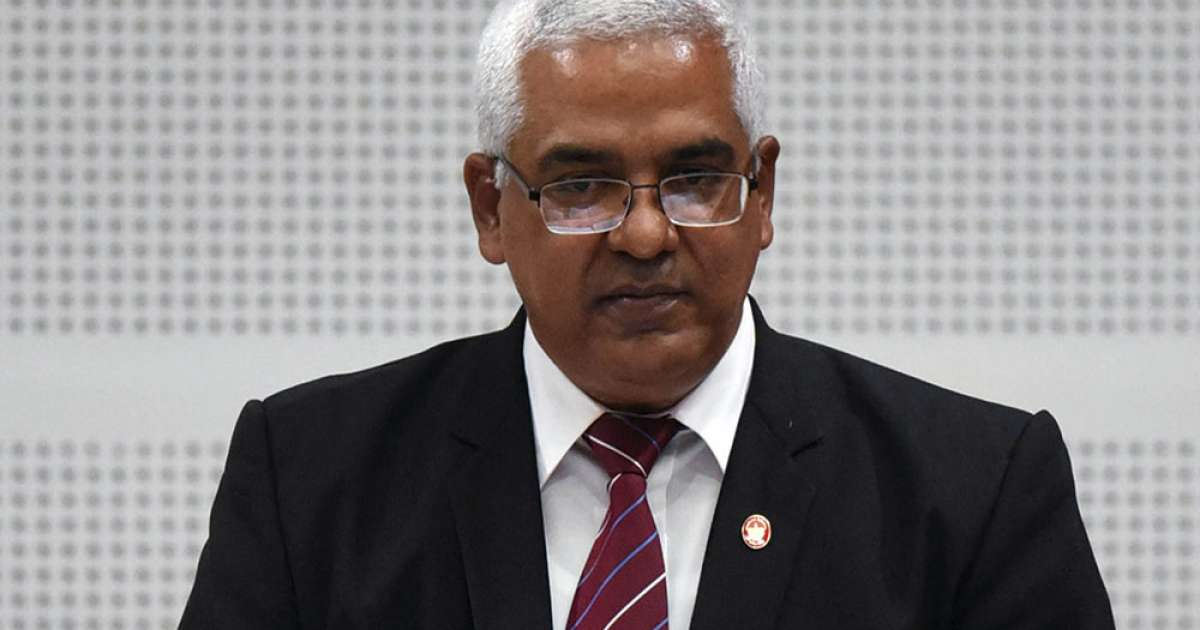
Late Castroism continues to show its inability to solve problems, entrench crises and open new fronts that make it look ridiculous before Cubans and the world; including its few tactical allies.
The release of the political prisoners - agreed upon last Christmas with the United States - was not fulfilled due to the lack of leadership from President Díaz-Canel, which aborted the solution to a problem that affects more than a thousand Cuban families.
The traumatic 11J left puchindrú to the olive green and guayaberada caste, which fails to articulate a political strategy, except for the childish creative resistance and consecutive desires of Peter Pan; as if the fate of a broken nation and eleven million Cubans were not at stake; But let's go to the penultimate farce of the pirates of the Caribbean.
February 2023. Minister of Justice of Cuba, Oscar Silvera Martínez, before delegations from the European Union and the Vatican: there is no legal possibility of an amnesty in Cuba.
May 2023. Secretary of the Episcopal Conference of Cuba, Ariel Suárez: the "door is open to an amnesty” for political prisoners, after conversations with ruler Miguel Díaz-Canel and other senior government officials on the island
In three months, the government changed its opinion and disavowed its own Minister of Justice, recognizing - in fact - what CyberCuba He warned on February 17, when the minister's words surprised jurists and international observers, because current Cuban legislation allows amnesty to be used to extinguish the sentences of those sanctioned, and also has the option of pardon; as regulated by the new Penal Code, in its articles 90 and 92.1 and 93.
Article 90. Criminal liability is extinguished by:
a) Death of the offender;
b) extinction of the legal entity;
c) have complied with the sanction imposed;
d) the trial period corresponding to the conditional remission of the sanction of temporary deprivation of liberty has elapsed;
It is) amnesty;
f) pardon;
g) acquittal judgment issued in the review procedure;
h) termination of the criminal action, as a consequence of the application of opportunity criteria or due to compliance with the trial period imposed in the conditional dismissal;
i) prescription of criminal action;
j) prescription of the sanction;
k) withdrawal of the complainant from crimes prosecutable at the request of a party;
l) for desistance of the complainant in the crimes in which this is provided in the special part of this Code; and
m) the expulsion from the national territory of the sanctioned foreigner, in the case referred to in section 2 of Article 54 of this Code.
Subsection m does not apply to nationals with passports from their adopted countries imprisoned during the post-9/11 repression because the laws consider those born on the island to be Cubans for all purposes; unless the dispossession of nationality advocated by the dinosaurs of the communist party, military and members of the government is imposed.
Article 92.1. The amnesty extinguishes the sanction and all its effects, although it does not extend to civil liability, unless the respective law provides otherwise.
Article 93.1. The pardon only extinguishes the main sanction and never the accessory sanctions, unless they have been expressly included in it.
2. The pardon cannot include civil liability or the cancellation of the criminal record of the sanctioned person, unless it is definitive and these effects are expressly stated in the corresponding regulatory provision.
On that occasion, the cardinal Beniamino Stella He responded to the minister that it was "secondary that it be legally defined as an amnesty or clemency, because the words can also be secondary" and stressed that if Cuba did not find host countries for the prisoners it intends to banish, "it is important that the young people; that in a moment they expressed their thoughts in the way we know, they can return to their homes.
What has changed in these three months? A increase in repression - in all areas - and the acute socioeconomic deterioration of Cuba, lacking allies and investors willing to invest money without real guarantees of collection; equation that make up a pro-9/11 climate, which intimidates the oldest dictatorship in the West.
What do you think?
COMMENTFiled in:
opinion article: The statements and opinions expressed in this article are the exclusive responsibility of its author and do not necessarily represent the point of view of CiberCuba.